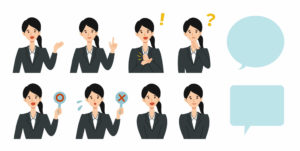Searching for the perfect employment opportunity can be an exciting yet daunting task. You’ll want to take into consideration many factors as you prepare to find a position that fits your needs as well as your desires. While many individuals try to navigate this process alone, many find that working with an experienced executive headhunter Chicago from a firm like Sales Recruiters Chicago can make a huge difference in finding well-matched opportunities for their skill set.
Recruiters, or headhunters, work to pair those who are on the hunt for a job with positions that fit their expertise. They act as a liaison between job seekers and potential employers. One thing to keep in mind is that recruiters work for the employer that is looking for qualified candidates. Their primary goal is to research as well as find the best talent to bring into the interview process. If you receive an invite for the interview, you are likely a good fit for the position.
What Questions Should I Ask My Headhunter?
If you have gotten to the interview stage after working with your executive headhunter Chicago representative, you’ll first want to ask some pertinent questions before the interview. Taking the time to do this research will help you to feel confident in whether or not the job opportunity is a good fit for you and if so, to put your best foot forward during the interviewing process.
There are many reasons you should ask a headhunter questions. Some of the main reasons are:
- The recruiter will know the employer they are working for well. Therefore, they are an excellent information source.
- Asking questions demonstrates interest and initiative and allows you to take control of your job search.
- Asking well-thought-out questions puts you in the position of being fully informed about the company as well as the job description you are interviewing for. This extra bit of preparation can make you stand out from your competition.

Today, we are going to share our top 10 questions to ask recruiters that you may be working with before you attend an interview. So, without any further delay, let’s begin.
1. HOW LONG HAS THE POSITION BEEN OPEN?
This question can alert you to any potential red flags early on. A position that has been posted for a long time can indicate a highly picky employer or alert you to any potential undesirable challenges regarding the company or position, for instance, perhaps the hiring manager has a candidate wish-list that is nearly impossible to fulfill.
2. WHAT IS THE INTERVIEW FORMAT?
First, it’s important to know who you are going to be interviewing with so that you can work to connect with them. Whether you are interviewing with one individual or a panel, do your best to research their roles within the company and find out a bit about them. This knowledge can help to lessen the pre-interview jitters and give you some conversation starters.
3. HOW MANY INTERVIEWS ARE TYPICAL?
Different companies interview differently. Some have a screening interview and then invite back a select few candidates for a second or even third interview. Depending on the employer, some may execute this process over 1-2 full days, having candidates remain for multiple rounds. Others may drag things out for weeks. Knowing what to expect can help to guide you.
4. IS THIS A NEW OR EXISTING POSITION?
This question can provide excellent insight into the inner workings of your potential employer. If the job is a previously established position, it is helpful to know if the person formerly in that position was promoted or left the company. Did they receive a new position? Will they will help train whoever is the new hire? If the position is new, investigate why the role was developed and how it is furthering the company’s goals.
5. WHAT ARE THE 3 MAIN SKILLS YOU NEED FOR THIS JOB?
This information should be provided to you by the recruiters you are working with when you begin the application process. However, if it is not provided, getting the answer to this question is vital in preparing for an interview and for any questions that may come your way.
6. WILL THERE BE ANY PERSONALITY OR APTITUDE TESTS?
Psychometric testing is an increasingly common part of the interview process for many corporations. These analyses provide an employer with helpful information regarding a potential hire’s personality, psychological profile, and skill set. The good news is that you can prepare for many of these evaluations once you know what “tests” your employer will use.

7. WHAT KEY TRAITS AND ATTRIBUTES DO YOU NEED TO BE SUCCESSFUL?
Understanding what a potential employer is looking for is essential in helping you, as a candidate, know whether you and the employer are a match made in Heaven or have significant philosophical differences that may push you to decline the opportunity.
8. WHAT SPECIFIC REASONS RULE OTHER CANDIDATES OUT?
Sometimes knowing what not to say and do is more important than knowing the right actions and answers. If your recruiter is able to share this information, it can help you to avoid any potential interview process pitfalls that could spell game over for your candidacy.
9. CAN YOU REVIEW MY RESUME?
Sometimes headhunters will make adjustments to candidates’ resumes to streamline make them a better fit for specific roles. You can request a copy to see if your recruiter made a change to your application.
10. WHAT IS THE SALARY RANGE FOR THE POSITION?
Although money is an awkward subject, it’s important to know if the salary range for a position is what you are seeking. This will help manage you understand whether your pay expectations are on point.
We hope that this list provides you with some helpful talking points to discuss as you pursue your job search. If you are seeking employment opportunities in the Greater Chicago Area, we invite you to reach out to us at Sales Recruiters Chicago, your executive headhunter Chicago experts.



Comments are closed.